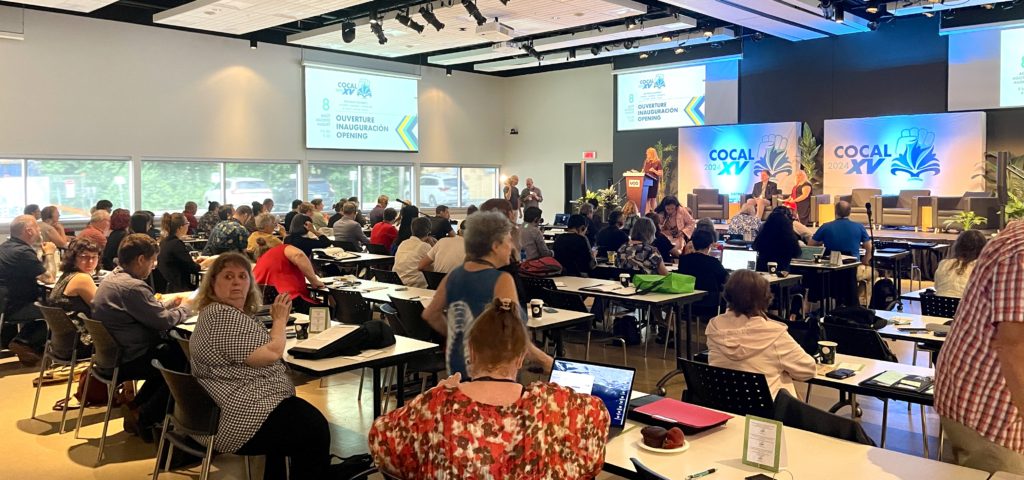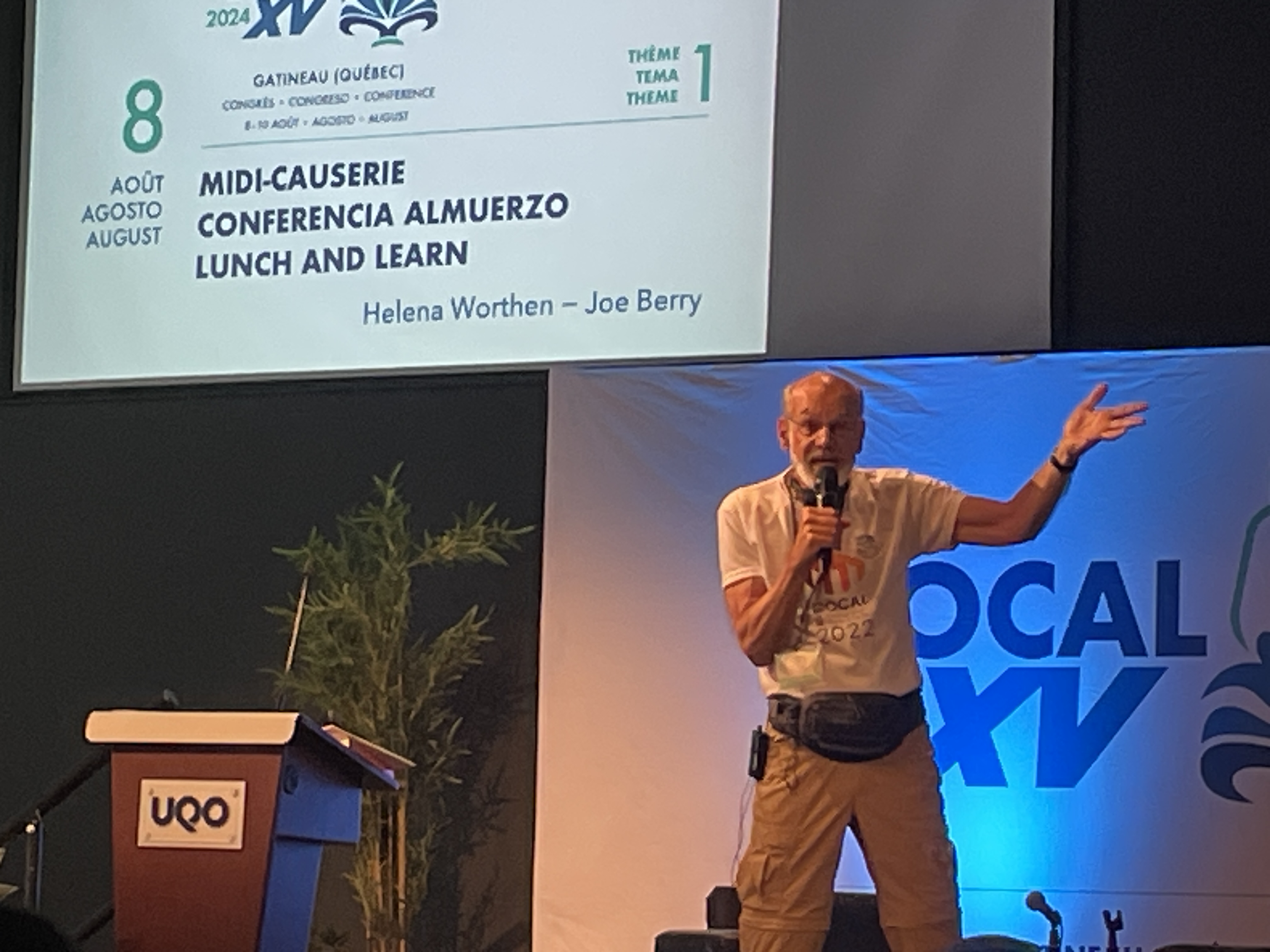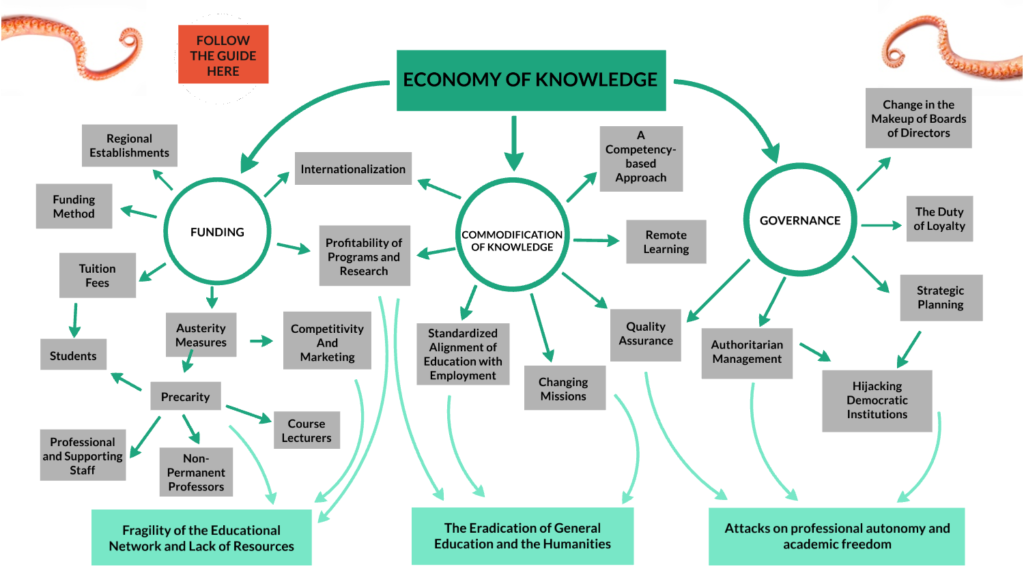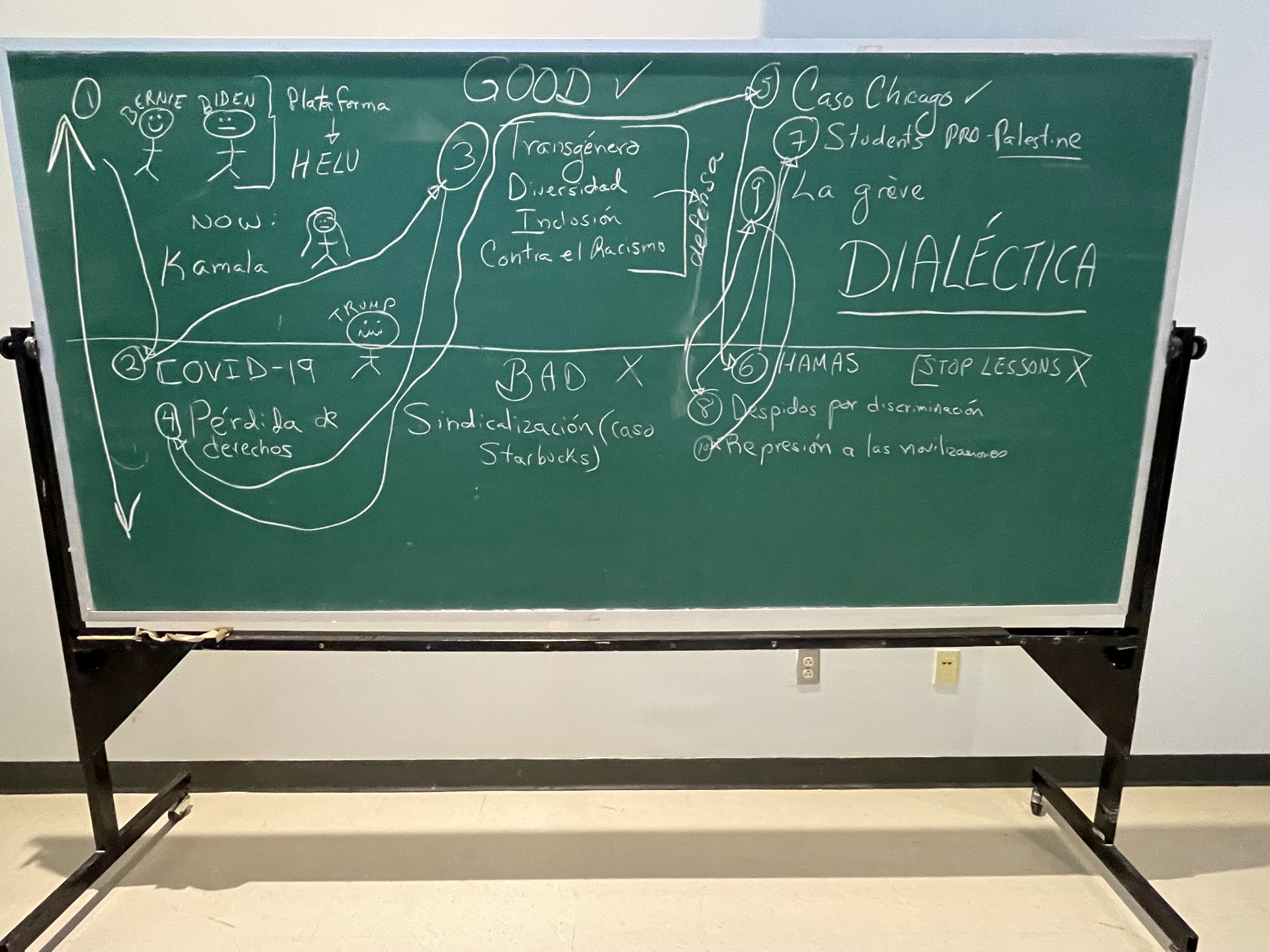From Helena Worthen, Chair, HELU Media & Communications Committee

Does HELU need an international coalition partner?
The Coalition on Contingent Academic Labor (COCAL) concluded its fifteenth bi-annual conference on August 9 in Gatineau, Quebec, drawing approximately 100 participants from Mexico, the US and Canada. This marked nearly 30 years of a project that is both unique and central to the fight to protect higher education as a public good. Presentations focused on the working conditions of faculty, the majority of whom in all three countries are precarious and underpaid and therefore unable to exercise academic freedom in teaching, research, governance and the public sphere.
A report from the XV COCAL Conference is due to HELU because in vision and spirit the two organizations are parallel and, prompted by the dissemination of a manifesto at COCAL that resembled the Vision Platform of HELU, a discussion evolved among HELU members present. We noted the following:

Two key differences between the organizations are that COCAL deals with faculty only, whereas HELU is wall-to-wall higher ed workers, and that COCAL is tri-national, whereas HELU is US-only. Yet despite being adaptations to different national labor regimes, the labor conditions in the COCAL countries are in fact more alike than different, all having undergone the neo-liberal contraction since the 1970s and deteriorated into low-wage precarity.
But a third difference is in the internal structures of the two organizations. HELU is presently, post the May 2024 Convention, focusing on building a strong internal structure. COCAL has no comparable structure. Yet COCAL’s survival is worth studying. Thirty years is a long time for a voluntary organization formed to fight the unequal battle against contingency. COCAL is actually a network of activist individuals, many of whom are leaders of local unions and who act with the support of their unions. It has never been incorporated and is not a non-profit. COCAL’s main event is the bi-annual conference. Every two years, on a rotation, one of the three countries is the host. Each host committee passes along the COCAL resources to the next host country committee, which then creates a budget and a plan. Conferences have been held in Queretaro, Mexico; Athabasca, Canada, Chicago, US; San Diego, US; New York City, US; Quebec City, Canada; Mexico City, Mexico, and so on. Led by an International Advisory Committee, COCAL also has a website, http://www.cocalinternational.org/about-us.html; a news aggregator/newsletter, a Facebook page and a discussion list.

Like HELU, presentations and workshops at a COCAL conference focus on labor: union organizing and bargaining, higher ed policy, legislative and political issues. Although the program with its plenaries and workshops looks like a traditional academic conference, traditional status markers are, if not erased, at least on hold for the duration. There is no doubt that the relief of being in an environment where people treat each other as equals in a movement is a major contributor to the commitment that participants feel and to the survival of COCAL over the decades.

A further discussion of alliance between COCAL and HELU would take into consideration:
- Differences in vision.
HELU’s vision can be summarized as desiring to build a higher ed labor movement on an industrial basis, wall-to-wall and coast-to-coast, everybody in, nobody out. COCAL’s vision is specifically faculty. However, this vision was set forward nearly 30 years ago when COCAL was first organized and contingency was “a dirty secret,” in need of exposure. At that time broadening the vision to include all higher ed workers would not have helped move the contingent faculty movement forward.
- Differences in power
HELU’s expectation is that through the representative process of delegates and elected leaders, the power that local unions have to advocate, guide policy, appear in public discourse, build a credible threat of disruption and go on strike can be summoned to act in a coordinated direct action that will multiply the power on the ground throughout the higher ed labor workforce. This is “hard” power that comes from structure. An example would be lining up contracts across the US in 2028, (a resolution passed at the AFT 2024 convention) following the challenge by Sean Fain, the new president of the UAW to which many HELU members belong.
Although both Mexican and Canadian higher ed sectors have seen big actions including strikes by faculty, these were not coordinated through COCAL. The power of COCAL is the “soft” power of education through example, inspiration, information and networking.
- An international vs national perspective
HELU is currently focused on building an organization that is focused on the US, where it is past time to deal with a whole cataract of crises. But the US is just one of the three countries in North America. As many COCAL presenters noted, the US does not own neo-liberalism. Understanding its reach and appreciating acts of resistance beyond our borders could help us get past that problem.
Can we talk?
The question, “Does HELU need an international coalition partner?” will get answered in practice. HELU activists at COCAL noted that the host country for the next COCAL conference is the US. This immediately sparked the question of how to explore compatibility between the two entities. An invitation? A zoom conference? A referral to the Outreach Committee? Can we talk?

COCAL and HELU are neither in competition, nor comparable. COCAL is a conference, not an organization. Because COCAL is a conference, it provides a space for conversation: for organizations to “talk.” COCAL is not an organization that can “talk” to other organizations. They are different, not competing structures with different purposes. That’s OK.